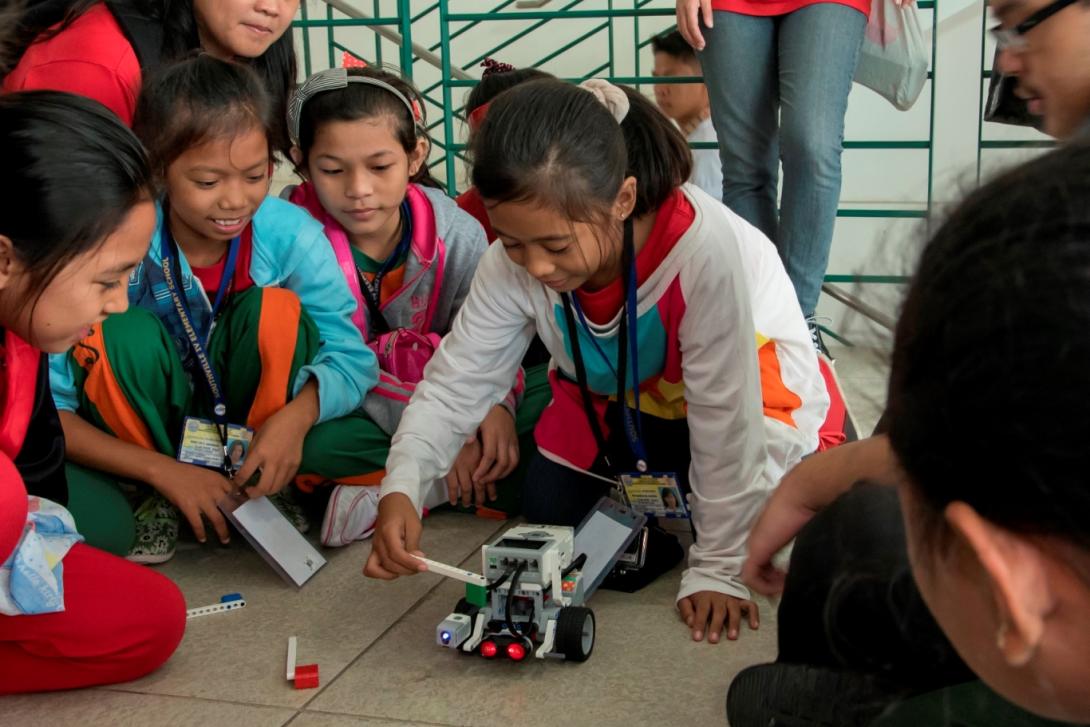To Ensure That all Children Fulfill Their Potential, Pay Attention to Girls' Needs

What is the relevance of International Day of the Girl in 2018?
As many countries approach parity in school enrollment between girls and boys, and as some countries are seeing women overtake men in enrollment and achievement at colleges and universities, it could be tempting to ask if it’s still necessary to devote a day to girls. At Teach For All, our work is dedicated to ensuring that ALL children can fulfill their potential, and to creating a better ecosystem of support for all kids. Given our charge, this question goes to the heart of the work that I show up and do every day.
To answer the question, I look around at what remains an obstacle to true equality for girls and the women they become. I look at South Africa, where the rate of female murder is four times higher than the global average, with half of those deaths occurring at the hands of an intimate partner. I consider that girls, particularly in adolescence, spend up to 50% more time on housework globally—a trend that follows us once we are married and take on the primary mental and physical load for ensuring housework is done. Despite twice as many women entering parliaments around the world between 1995 and today, women are still markedly underrepresented in political power. We are underrepresented in STEM fields and other career tracks where our collective future is being decided—climate science, artificial intelligence, urban planning. And while it may be considered trivial in comparison to the appalling rates of femicide and gender-based violence occurring around the world, women are still significantly underrepresented in arts and popular culture, leading to a representation gap that predisposes girls, boys and all of us to continue thinking of girls and women in limiting and stereotypical ways.
Half a billion women are still functionally illiterate.
We know that so many of these disparities find their roots in the quality and duration of the education girls and boys receive. We also know that the benefits of education, particularly increased earning power and greater self-advocacy, can help girls overcome some of this. I fear that we are much less confident, however, about naming the impact on girls of the implicit and explicit messages about roles, worthiness, and aptitude that are conveyed to girls and boys at school, at home, and across society.
This article written by Sunita Waiba, a 17-year old student in Nepal, reflects no such reluctance. Here is a young woman looking out at her community and questioning why her basic right to equal opportunity remains so hard-fought. She speaks about the efforts to dismantle patriarchal systems—from her teachers fighting systemic barriers at school, to her own family members taking control of their lives despite intense opposition—that give her fuel to fight for equality. She is unafraid to name patriarchy as the system underpinning the unequal treatment she observes, and writes accordingly:
"As a girl, I dream of seeing equality in my society. I also have overcome such issues of patriarchy in my home where my mom spent every minute doing all the household work alone while also raising us… I used to hate being born as a girl child seeing these stereotypes. Now, seeing female teachers who fight daily with patriarchy present at school, try hard to ensure every voice is heard, my own sister and mother, their courageous action and dedication makes me feel motivated.”
To me, this is the relevance of International Day of the Girl in 2018. We are at the close of a decade marked by unbelievable progress and opportunity, but where so many girls and women still live constrained by the confines of patriarchy. As we pursue ensuring that all children receive the kind of education that empowers them to create a better future for themselves, their communities, and our world, I believe we will fail in those efforts if we forget to consider the underlying systems that work against girls and women in particular.
This post was originally published on Medium.
Learn more about Teach For All's Global Girls' Education Initiative.


